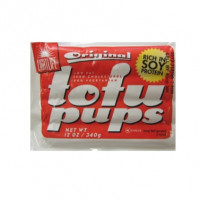
Over the past two to three decades, we’ve been told that soy products like soy milk and tofu are healthy alternatives to meat and dairy.
But is that actually true?
Soy is now ubiquitous in the modern diet. You don’t have to be a tofu-loving hippie to consume a lot of soy. Why? Because soy is in just about all processed and refined food in the form of soybean oil, soy flour, soy lecithin and soy protein. Most people are unaware of how much soy they consume for this reason.
In fact, the average American – who is most definitely not a tofu-loving hippie – gets up to 9% of total calories from soybean oil alone!
In small amounts, traditional fermented soy products like miso, tempeh and natto are not harmful, and may even be beneficial. This is how soy was traditionally consumed in Asian countries. But in high doses, or in processed form – which is how soy is predominantly consumed in the U.S. – it has a toxic effect.
More specifically, soy:
- contains trypsin inhibitors that inhibit protein digestion and impair pancreatic function (which in turn causes digestive distress);
- increases our requirement for vitamin D, which up to 50% of the population is already deficient in;
- contains high levels of phytic acid, which reduces absorption of minerals like zinc and iron and inhibits enzymes we need to properly digest food;
- contains phytoestrogens that disrupt endocrine function and have the potential to cause infertility and to promote breast cancer in adult women; and,
- contains vitamin B12 analogs that is not biologically active and actually increases the body’s requirement for true B12.
Soy is particularly harmful for women and men trying to conceive, for women already pregnant or breastfeeding and for infants.
A study at the Harvard Public School of Health in 2008 found that men who consumed the equivalent of one cup of soy milk per day had a 50% lower sperm count than men who didn’t eat soy.
In 1992, the Swiss Health Service estimated that women consuming the equivalent of two cups of soy milk per day provides the estrogenic equivalent of one birth control pill. That means women eating cereal with soy milk and drinking a soy latte each day are effectively getting the same estrogen effect as if they were taking a birth control pill.
This effect is even more dramatic in infants fed soy formula. The key ingredient in soy formula is soy protein isolate, a compound that is not even recognized as safe for human consumption by the FDA.
Infants fed soy receive 6.25 mg of soy isoflavones per kilogram of body weight per day. This is more than 10 times the amount of soy isoflavones that has been shown to cause problems in adults.
In a baby that weighs 13 pounds, 10 mg of soy provides the estrogenic equivalent of a birth control pill. The average amount of soy formula given to an infant in a day contains 40 mg of soy. This means that feeding soy formula to a baby is the equivalent of giving her 4 birth control pills.
This explains why babies fed soy-based formula have 13,000 to 22,000 times more estrogen compounds in their blood than babies fed milk-based formula.
The following chart summarizes 6 studies that have examined the effect of soy formula on infants. As you can see, the results clearly indicate that soy formula can not only cause problems during infancy, but can even predispose that baby to serious health problems later in life.
For a thorough discussion of the dangers of soy products, especially during the pre-conception, pregnancy and breastfeeding period, click here.

Leave A Reply (No comments So Far)
No comments yet